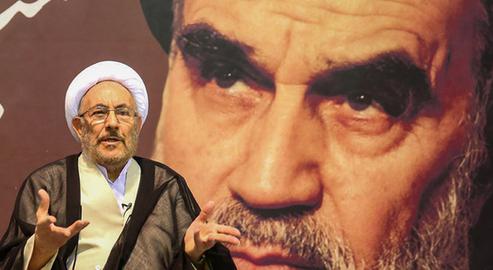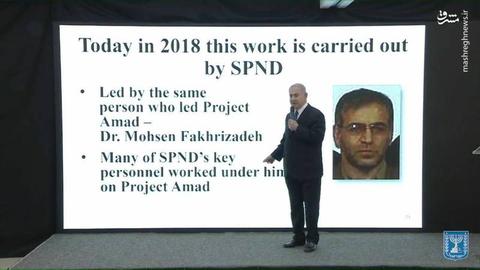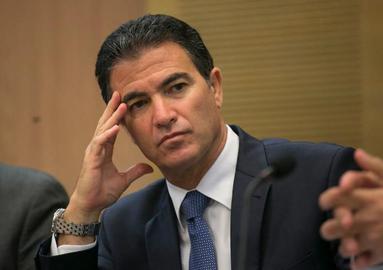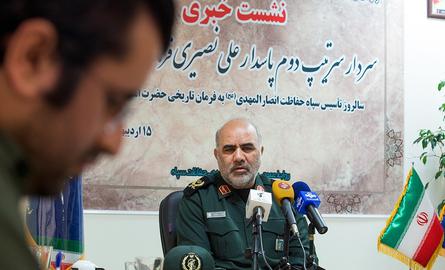A former Iranian intelligence minister has warned that the lives of all Iranian officials are under threat from Mossad, Israel’s secret intelligence service.
Ali Younesi, who was Minister of Intelligence from 2002 to 2005 during the presidency of Mohammad Khatami, made the comments on Tuesday, June 29. Speaking to Jamaran News, he claimed that Mossad’s influence and infiltration in Iran had reached a terrifying level and warned that assassination attempts of key officials could be imminent.
These remarks hint at the possibility of entrenched Israeli influence in the Ansar Protection Corps, the unit responsible for protecting officials, and within the Revolutionary Guards, and indicate that joint work carried out by Israeli and United States intelligence could have produced such a scenario of infiltration. The fact that a number of bodyguards tasked with protecting officials have fled to the United States over the years could be evidence of this.
As alarming as Younesi’s statements are, he follows a pattern of Iranian officials, over the years, offering insight into how Iran’s biggest enemy compromises Iran’s national security, including its nuclear facilities and military operations, as well as the safety of individual leaders and key politicians. So who else has gone public with their inside knowledge in the past, and what impact has it had?
***
Hossein Alaei, the former head of the joint headquarters of the Revolutionary Guards, was the first to come forth on the subject, and since then, others have followed suit, including Revolutionary Guards general Mohsen Rezaei and former president Mahmoud Ahmadinejad.
One key case to consider is the assassination of nuclear scientist Mohsen Fakhrizadeh in 2020, after which the Ansar Protection Corps was accused of failing to perform its duties. Former Mossad chief Yossi Cohen had also stated that Mossad had been able to closely track Fakhrizadeh for years.
In 2019, Ali Nasiri, the commander of Ansar Corps, was dismissed, prompting widespread rumors about his loyalty. The Revolutionary Guards denied any claims of this, and in the end no significant information emerged on his case. It was also announced that Mohammad Tavalaei, the Guards’ deputy for strategic affairs, and Mustafa Rabiei, a former Guards deputy inspector, had also been arrested in connection with Israel gaining access to and transferring key documents concerning Iran's nuclear program; this news was also denied.
At the same time, a number of reports emerged announcing the arrest of several other high-ranking Iranian security officials on charges of spying for Israel.
In early May 2015, journalist and activist Reza Alijani reported that two officials responsible for Israeli desks in the Ministry of Intelligence and the Revolutionary Guards intelligence service had been arrested and executed on charges of spying for Israel.
On May 25, 2016, Majid Ansari, Hassan Rouhani's parliamentary deputy, complained in a public session of parliament about comments made about the Revolutionary Guards’ intelligence unit. ”Was there not infiltration in the same institutions that are now being named? We had a person who had infiltrated this institution and was executed. This was just last year."
Finally, former President Mahmoud Ahmadinejad stated in June 2021 that the top person in charge of dealing with Israeli spies in the Iranian Ministry of Intelligence was himself an Israeli spy.
Meanwhile, the arrest of some of these security forces was attributed to internal power conflicts within these institutions, and it was not clear who had actually cooperated with Israel.
Unconfirmed Claims of Dramatic Incidents
The claim that members of the Revolutionary Guards had been arrested on charges of spying for Israel has been reiterated by political officials more recently. Reformist politician and former deputy speaker for parliament Behzad Nabavi, for example, had said in 2019 that "two Israeli spies were identified in the office of a certain [Guards] commander who were also associated with political inmates in prison, and one of them was executed.” The person he referred to is Mohammad Reza Naghadi, who was the head of the Basij organization, the Guards’ voluntary unit.
In 2018, there was an attack on the car of foreign minister Mohammad Javad Zarif while he was visiting Amirkabir University. Speaking on May 1, 2018, Abdollah Ramezanzadeh, who was spokesperson for the government of Mohamamad Khatami's government, linked that attack to arrests of staff from Naghadi’s office, insisting those arrested were “members of the same organization that the Israeli spy had settled in their chief's office."
Hojatolah Behrouz, Tehran's former mayor deputy for transportation and traffic, was another official said to have been arrested on espionage charges, though this has been disputed. Because of being equipped with CCTV cameras, the traffic control company has been considered to be part of Iran’s security institution network. In 2019, it was reported that the traffic control company’s inability to deal with traffic jams was a result of protest rallies. Following this, Mohammad Reza Naghadi entered into a dispute with Hojatolah Behrouz, CEO of the traffic control company, and shot him in the leg with a pistol. Behrouz, however, denied the incident and claimed he had not had any dealings with Naghadi. For his part, Naghadi announced in 2019 that he was filing complaining against Behzad Nabavi for his accusations, but the outcome of this complaint was not clear.
In fact, arrests of military and security forces on charges of espionage for Israel went so far that Hossein Alaei, the former commander of the Joint Chiefs of Staff of the Iranian Revolutionary Guard Corps, was driven to make an announcement, stating that in 2018 Israel had created an "extensive intelligence network in the nuclear, missiles, political, and economic spheres” in Iran dating back 15 years.
Regarding the attack on the Natanz nuclear facilities, Mohsen Rezaei, the former commander of the Revolutionary Guards, said: “Prior to this incident, our secret documents were stolen, and before that, it was suspicious. Therefore, it is clear we have a toxic security situation, and that security sanitation should be one of the important programs of the future government in all ministries and sensitive places, and in all areas, and to clear these suspicious cases and possible sources of infiltration."
In a recent interview, Younesi, the former Minister of Intelligence who started the latest round of speculations, claimed: "There was no such infiltrations in our time or before, and what they stated was the work of Israel proved not to be true." However, he did not elaborate or give specifics as to what had been described to be “Israeli work" and then not proven.
In Khatami's government, the assassination of various Revolutionary Guards commanders, including the plane crash in which Ahmad Kazemi, the commander of the Revolutionary Guards’ ground forces, died, was attributed to sabotage, but was not confirmed.
According to some narratives, assassinations of Iranian nuclear scientists began during Mahmoud Ahmadinejad’s first term (2005-2009) and, according to other reports, during his second.
Mostafa Moin, Minister of Science under President Mohammad Khatami, claimed on Telegram that Iranian nuclear scientist Ardeshir Hosseinpour had been assassinated by Mossad, but that claim had been denied in order to keep the Ministry of Intelligence from asking questions. He was killed during Gholam Hossein Mohseni Ejei’s tenure as Minister of Intelligence (2005-2009) and other nuclear scientists were killed during the tenure of Heydar Moslehi (2009-2013), though Moslehi and others denied reports that murdered scientists including Darioush Rezaie were linked to the country’s nuclear work.
Israel’s deadly force and influence can be traced through several other incidents, some of them widely documented. They include the assassination of Hassan Tehrani Moghaddam, head of the Revolutionary Guards’ Self-Sufficiency Jihad Organization, the launching of the Stuxnet virus against Iran’s nuclear program in 2009. All of these have been the subject of ample claims, counter-claims and speculation.
Add to this the much-reported sabotage operation at Natanz nuclear facility, and the theft of Iranian nuclear documents. But the 2020 assassination of Mohsen Fakhrizadeh was another dramatic show of this power, and there has never been a sense of it dissipating. Now, on the eve of a new president, Younesi has stated that all officials should be worried about their lives. The claim will reignite fear within the Iranian upper echelons of power, but a review of recent Iranian history shows this fear has never been long out of sight, and speculation and investigations into Israeli infiltration appears to be part of the fabric of Iranian political life.
Related coverage:
Ex-Intelligence Minister: Israeli Infiltration So Deep All Officials Should "Fear for Their Lives
IranWire Exclusive: Account of Scientist's Killing is "A Lie", Ex-Officials Claim
Exclusive: Mass Interrogations of Assassinated Scientist’s Bodyguards, Colleagues and Neighbors
Is Israel Behind a String of Explosions at Industrial Sites in Iran?
visit the accountability section
In this section of Iran Wire, you can contact the officials and launch your campaign for various problems




























comments